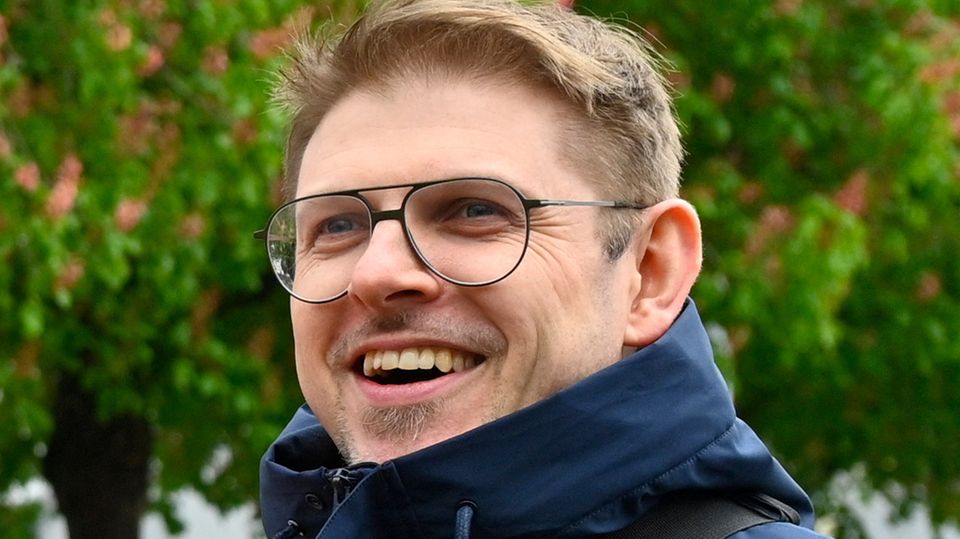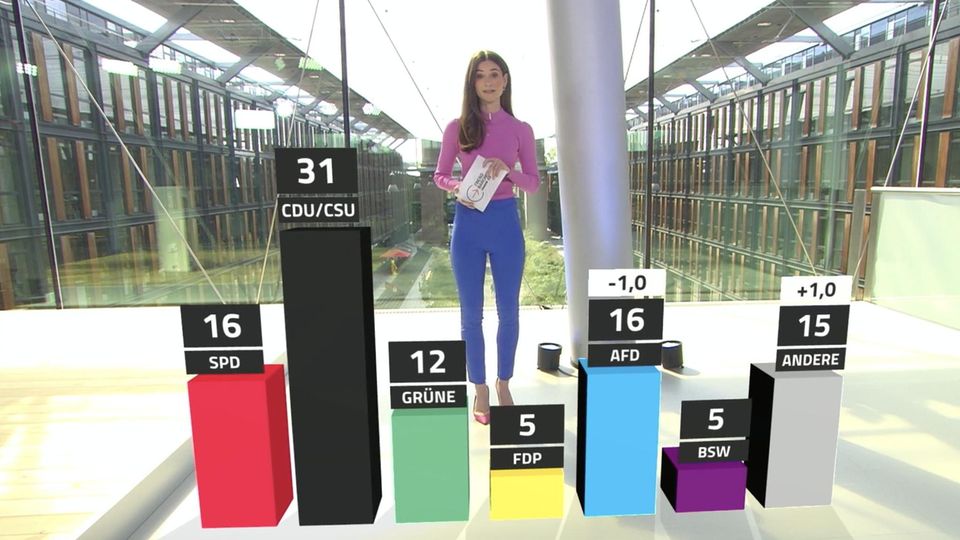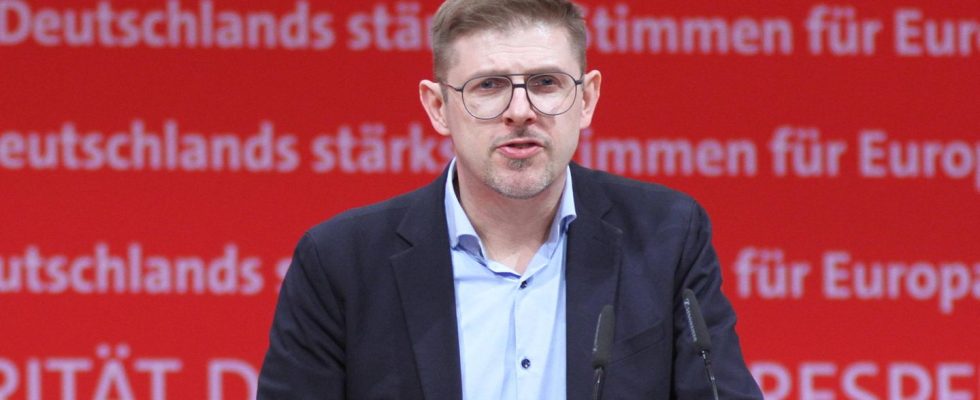Opinion
Attack in Dresden
Violence must not become the new normal: what is needed now
Matthias Ecke (archive photo) is in hospital after an attack in Dresden
© Imago Images
The attack on a member of parliament in Dresden shows how the mood in the super election year is dangerously escalating. This has to concern us all.
The Saxon SPD leading candidate for the European elections is in the hospital. Matthias Ecke and some Green party members were caught late on Friday evening putting up posters in a middle-class district of Dresden attacked. Because the Social Democrat suffered broken bones in his facial area, he had to undergo surgery. A Green party member was also injured.
Of course there is great outrage, from the SPD Federal Interior Minister Nancy Faden to the AfD chairman Tino Chrupalla. The internet was overflowing with expressions of solidarity over the weekend.
But no matter how important the horror may be in individual cases: it is not enough. It is no longer enough, nor are the expected appeals to the police, security authorities and judiciary to finally take more decisive action.
Attack on Matthias Ecke is not a novelty
Because what happened in Dresden has been happening in Germany for years. Politicians, journalists, but also committed citizens are the target of attacks online, on the street or even in their own homes. And this is happening more and more often.

The SPD MEP Matthias Ecke is seriously injured in hospital after an attack.
© Matthias Rietschel / Reuters
Privacy is no longer taboo either. Be it that Green Vice Chancellor Robert Habeck’s holiday ferry is blocked, Saxon CDU Prime Minister Michael Kretschmer is visited at his holiday home or a memorial is erected next to the garden of AfD right-winger Björn Höcke: the threat is no longer just directed against the politicians, but also against their families.
Demonstrations nationwide
Hundreds of thousands show their flag against right-wing extremism – the images from the protest weekend
Yes, political violence and extremism have always existed. But in recent years it has arrived at the center of society – and with drastic consequences. In 2015, the mayor of Cologne, Henriette Rieker, was seriously injured with a knife, and in 2019, the district president of Kassel, Walter Lübcke, died from a shot in the head.
Nothing seems certain anymore
The causes are diverse. In an increasingly complex and rapidly changing world, the Internet is brutalizing communication, the binding power of traditional milieus is decreasing and crisis situations are piling up on top of each other. While the pandemic is far from being resolved, the war in Ukraine is triggering existential fear.
Everyone feels that something is changing, globally, but also in the city district, in the village and in their own families. Nothing seems certain anymore: peace, prosperity, democracy – and security.
Ordinary violent crime, which is at its highest level since 2007, is one level. The other is political violence, which has also reached new record levels and whose statistics do not come close to reflecting what is actually happening. At the same time, squares and streets are increasingly being hijacked by extremist organizations in a variety of ways. While Islamists and left-wing extremists tend to dominate in the big cities, right-wing extremists dominate in small towns and rural areas.
Dresden is everywhere
The findings are clear: public space, the place in which the open society negotiates its compromises, is in danger. That has to be said in this drama. Dresden is not an isolated case. Dresden is everywhere.

Current survey: AfD continues to lose popularity, FDP receives poor grades
16:27 minutes
What to do? In addition to what is obvious, from the absolutely necessary protective measures to consistent criminal prosecution, everyone who shapes and determines this social debate must finally de-escalate rhetorically. The disinhibition of social networks has long since reached election campaign speeches, not just among the AfD or other extreme parties.
The fact that demagoguery leads to hatred and ultimately gives rise to extremism is an age-old finding that is currently being demonstrated, for example, at US universities. She finally needs to be taken seriously. Violence must not become the new German normal.


